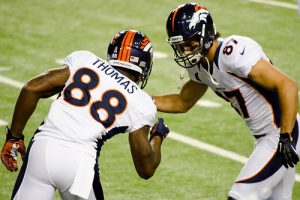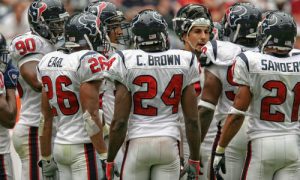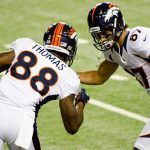This Sunday’s Super Bowl LI has plenty of local angles for business reporters in the team hometowns, Boston and Atlanta, as well as Houston, where the game is being played. But that’s not to say the game doesn’t have a significant impact across the country, with nearly one-third of the U.S. population tuning in. Here are story angles business reporters can pursue all over the map.
Super Bowl sick day
Last year, the Workforce Institute at Kronos conducted a survey that found nearly 16.5 million Americans did not intend to go to work the Monday after the Super Bowl. A full 10.5 million of those people requested a vacation day in anticipation of the game. Some companies are even giving their employees the day off. Heinz has announced that their employees will not have to come to work the Monday after the Super Bowl, and has even encouraged the rest of America to follow suit.
REPORTER’S TAKEAWAY Check with employers in your area to see if there was an impact on their business after last years’ Super Bowl game, and if they are taking measures to address the issue this year. Ask workers if they plan to skip out on work or if they have already requested the day off. Are any local businesses planning to stay closed the Monday after the Super Bowl?
Viewer attitudes and the stock market
With the Super Bowl being the biggest consumer “holiday” after New Year’s, economists and savvy analysts say that what happens on Sunday may impact the stock market—at least the Monday following the game. USA Today’s Ad Meter provides information about the “likability” of Super Bowl advertising. An article by Forbes indicated that the degree to which consumers enjoyed a commercial during the big game directly impacted the company’s stock price that Monday. Find a complete list of companies advertising during Super Bowl 51 here.
REPORTER’S TAKEAWAY Survey viewers in your community to see what commercials are best liked and most memorable. Then track the stocks the following day to see if there’s a correlation. Ask local stock brokers if they’ve seen an increase in trading for the companies featured in Super Bowl ads.
Impact on local businesses
Food and beverage sales always spike at Super Bowl time. According to Nielsen, beer sales soar to $1.2 billion in the two weeks leading up to the game, and Americans spend $2.54 billion on snacks. And it’s widely known that sales of TVs reach an annual high this time of year. Almost eight percent of those surveyed by the National Retail Federation said that they planned to purchase a new television specifically in preparation for Super Bowl Sunday, a statistic that bests even Black Friday.
But not every industry sees Super Bowl gains. The National Retail Federation reported that while 5.5 percent of viewers planned to watch the game at a local restaurant or bar, that represents a huge hit to the food service industry. By contrast, data from the American Time Use Survey indicates that about 29 percent of Americans visit a restaurant or bar on a typical Sunday.
REPORTER’S TAKEAWAY Try to identify local businesses that may gain or lose business on Super Bowl Sunday. Ride-sharing companies and furniture stores might be anticipating an uptick in sales; places like zoos and movie theaters may be looking at one of the slower days of the year. Ask both sides how they prepare for the change in business on the day of the game.











